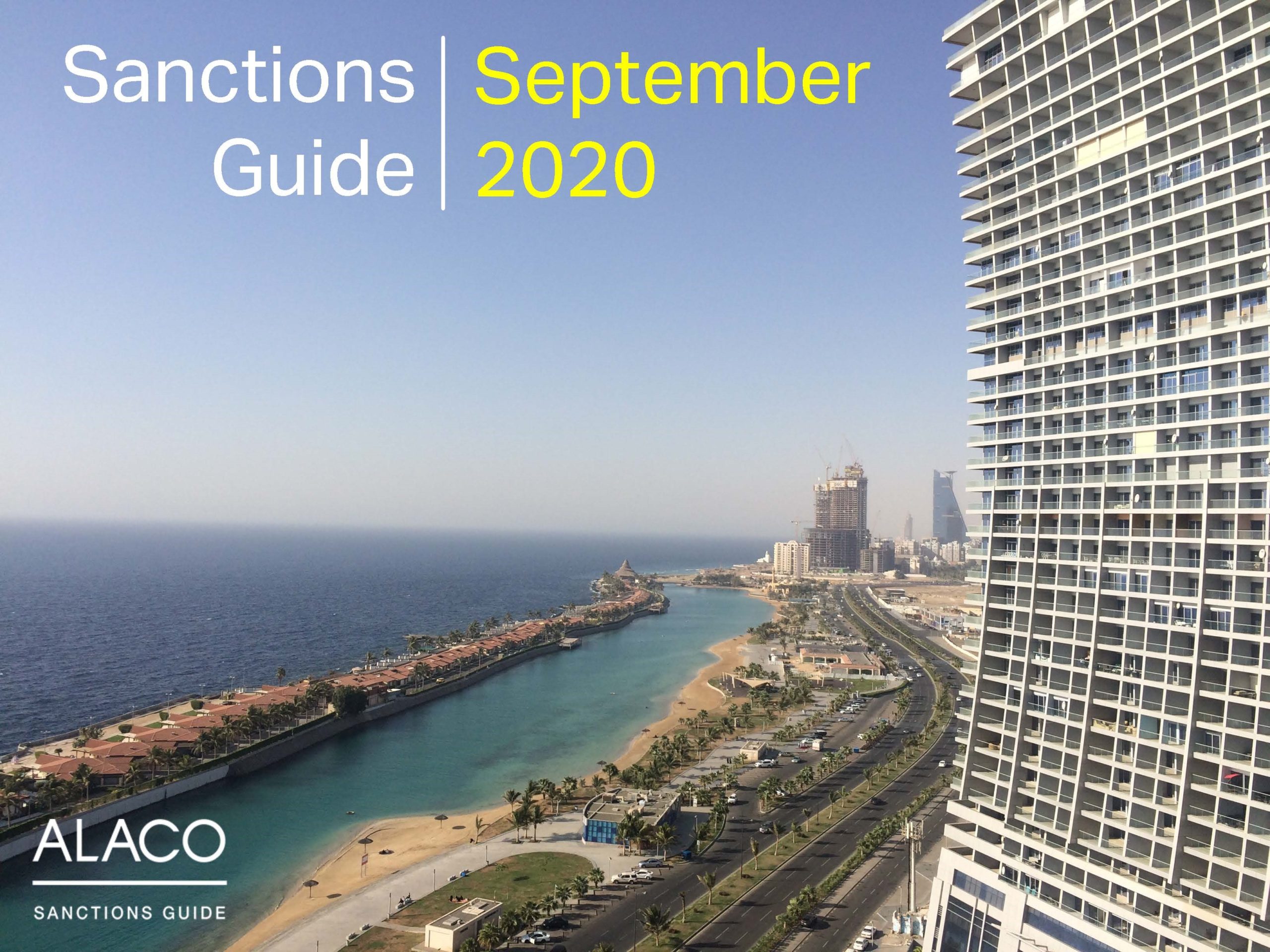Sanctions Guide – September 2020
Key sanctions developments this month include the UN Security Council’s defeat of a US bid to re-impose international sanctions against Iran, the sanctioning of Belarusian leader Alexander Lukashenko for alleged electoral fraud and a violent crackdown against protesters and an EU threat to sanction Turkey over its attempts to explore for energy in parts of the Mediterranean claimed by Greece.
- The UN Security Council has blocked an American bid to re-impose UN sanctions against Iran via the so-called snapback process. Thirteen members of the body asserted that the US had no right to trigger the process, which is set out in the 2015 Iran nuclear deal, as the US left the agreement two years ago. In a separate move, the Council also unanimously defeated a US resolution to extend indefinitely the UN arms embargo on Iran.
- French president Emmanuel Macron has reportedly warned the US that it may be unwittingly playing into the hands of Iran by sanctioning Hezbollah. A senior French official told Reuters that Macron issued the warning in a phone call to President Trump, urging him to “reinvest” in Lebanon. The conversation took place in advance of a donors’ conference co-hosted by France, in the wake of the massive warehouse explosion that caused damage to much of central Beirut.
- In a new round of sanctions aimed at pressuring Damascus into negotiating an end to the Syrian conflict, the US has expanded its blacklisting of members of President Assad’s regime, with measures against six senior officials and leaders of military units, including the commander of the National Defence Forces, Fadi Saqr. The measures, the third wave of designations under the Caesar Syria Civilian Protection Act, came on the eve of the seventh anniversary of the Assad regime’s chemical weapons attack in Ghouta, which killed over 1,400 Syrians. The Caesar Act sanctions strengthen existing measures as they can be applied to anyone that has dealings with Syria.
- As tensions rise over China’s growing military presence in the South China Sea, the US has said that it has imposed travel bans on an unspecified number of Chinese officials and business executives and subjected 24 Chinese companies to commercial restrictions, due to their alleged involvement in the militarisation of the strategic waterway, through which much global trade passes. The US in July backed countries accusing Beijing of violating their maritime rights in the South China Sea, having earlier rejected Chinese claims to offshore resources in most of the sea.
- In the latest tit-for-tat measures between Washington and Beijing, China has imposed unspecified sanctions on 11 American citizens, including six Republican politicians. The US, which described the Chinese move as “symbolic and ineffectual”, had earlier sanctioned Hong Kong chief executive Carrie Lam and the former British colony’s current and ex-police chiefs. In July, China imposed measures against three of the Republicans targeted in its latest action, after Washington sanctioned Chinese officials for the alleged persecution of Uighur Muslims in China’s Xinjiang province.
- The EU is reportedly preparing sanctions in response to alleged human rights violations in Belarus’ contested election, although it is not anticipated to target Lukashenko himself. Russia has warned the EU and the US against sanctioning its ally or interfering in its internal affairs.
- The EU looks set to intervene in a mounting dispute between Greece and Turkey related to oil and gas exploration in the eastern Mediterranean, which escalated this month after Turkey dispatched a survey ship into contested waters. The bloc’s top diplomat, Josep Borrell, said it was considering sanctions against Ankara, which could be discussed at the next EU summit in late September. Borrell said the sanctions might include measures against individuals or ships or bars on the use of European ports.
- The US administration is reportedly planning to tighten sanctions against Venezuela by possibly ending exemptions that allow the country to exchange crude oil for diesel. Elliott Abrams, the US Special Representative for Venezuela, told Reuters that “some exceptions” to bans on the trading of Venezuelan oil, introduced last year, may be removed. Reuters reported early in August that the US government was considering an October deadline for winding down all such transactions, including crude-for-fuel swaps and paying pending debts with crude.
- In a possible attempt to push the Taliban into making quick progress in US-led peace intra-Afghan peace negotiations, Pakistan has ordered the enforcement of UN financial sanctions against members of the group, including its chief peace negotiator. The enforcement action is also likely to be part of Islamabad’s efforts to avoid being blacklisted by the Financial Action Task Force, which last year put Pakistan on a grey list of countries that have agreed to address high money laundering and terrorism financing risks.


